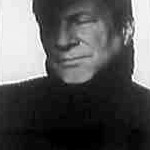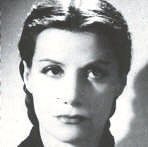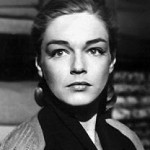‘Diabolique’/1955/Cinédis/114 min.
By Michael Wilmington
The worst kind of fictional horror, the kind that seeps into your psyche and stings into life your worst fears, sometimes springs from the seemingly mundane routines of life, when the placid world we know suddenly becomes a backdrop for darkness and evil.
 In French filmmaker Henri-Georges Clouzot’s masterpiece of suspense, “Diabolique,” a school near Paris turns into the site for a cold-blooded murder and a den of everyday nightmares. “Diabolique,” called “Les Diaboliques,“ (“The Devils”) in France, is a movie about the mystery and terror of appearances, and the ways that they can ensnare us, drive us mad or destroy us.
In French filmmaker Henri-Georges Clouzot’s masterpiece of suspense, “Diabolique,” a school near Paris turns into the site for a cold-blooded murder and a den of everyday nightmares. “Diabolique,” called “Les Diaboliques,“ (“The Devils”) in France, is a movie about the mystery and terror of appearances, and the ways that they can ensnare us, drive us mad or destroy us.
If there was ever a movie review that needed a “Spoiler Alert” it’s “Diabolique,” a film that doesn’t have one surprise up its sleeve, but many. It’s all surprise, all mystery, one twist after the other, going off like firecrackers until the end of the film.
“Diabolique” takes place in a boarding school, an ugly, sprawling ex-chateau run by a ferret-faced brute of a headmaster, Michel Delassalle (Paul Meurisse) and his weak, ill and persecuted wife Christina (Vera Clouzot). Delassalle viciously exploits and abuses his wife, and is openly unfaithful to her, with the school’s science and math teacher, a sultry, smart blonde named Nicole Horner (Simone Signoret, in one of her most famous roles).
Headmaster Delassalle is an awful man and the school is an awful but believable place, with bleak dormitory rooms, rotten food, dark hallways, and a dirty swimming pool in which something terrible, we feel, will happen. Or maybe not.
In the first of the movie’s string of shocks, we discover that Christina and Nicole, wife and mistress, have formed an unholy alliance. Both seemingly disgusted by the swinish Michel, they are plotting to kill him and disguise it as an accident.
And Michel is such a cad and sadist – a brilliant performance by Meurisse, who was later just as fine for both Jean Renoir (“Picnic on the Grass”) and Jean-Pierre Melville (“Le Cercle Rouge”) – that we don’t condemn the women. Another brilliant actor of astounding longevity, Charles Vanel, plays superlatively well the retired detective Fichet, who starts sniffing around when he runs into Christina at the morgue.
The man who made this astonishing and frightening movie, writer-director Clouzot, seemed to be many things himself: a cynic and a sometime sadist to his actors (especially his own wife, Vera), a friend/collaborator of artistic greats like Pablo Picasso, a WW2 opportunist who worked for a company run by the occupying Germans, and, above all, a genius at making movies that tightened the vise of anxiety like a noose around the audiences’ throats.
Clouzot was, in fact, the only specialist in suspense who was ever plausibly bracketed with Alfred Hitchcock – and Hitchcock was one of “Diabolique” ’s biggest admirers. The wry British master of movie fear wanted to buy the novel, “Celle qui n’etait plus,” by Pierre Boileau and Thomas Narcejac, on which “Diabolique” was based.
When “Diabolique” became an international hit, Hitchcock bought another Boileau-Narcejac novel, and turned it into his masterpiece “Vertigo.” Hitch then acquired a Robert Bloch novel called “Psycho” and essentially made it his own “Diabolique,” shooting in black and white, playing up similar scenes and themes (including the idea of murder in a bathroom), borrowing liberally from the earlier movie’s style and execution, even reworking some of its advertising gimmicks.
Where Clouzot, at the end of “Diabolique,” asked the audience not to reveal his film’s secrets, Hitchcock went further, banning the audience from entering the movie theater after “Psycho” began, in an age when people walked freely in and out of movies.
Clouzot is a lesser artist than Hitchcock, less visually inventive and less compelling. But Clouzot’s world view was more bitter and more astringent than Hitchcock’s. His stories are darker and less prone to compromise, his people more generally wicked and fallible – though maybe Hitch’s movies would have been darker too if he hadn’t had to labor under the Production Code for so much of his career.
Still, Clouzot was almost as much of a perfectionist as Hitch. And, together with master cinematographer Armand Thirard, he creates here, in story and style, one of the genuine great, classic French film noirs. “Diabolique” is a movie that, as much as that other dark tale of a murder gone awry, Billy Wilder’s “Double Indemnity,” helps define the whole genre.
As you enjoy the twists of this subversive noir, please don’t think that the movie is a piece of impersonal classicism from what François Truffaut mockingly called the “French tradition of quality.” “Diabolique” is not impersonal; it speaks from a heart seemingly bruised but intact.
And don’t kid yourself that that you can easily outguess and outwit this film, that it’s just an old black-and-white movie that can’t scare you. You’re wrong. It only seems to be.
Extras: Commentary by scholar Kelley Conway. Introduction by Serge Bromberg. Video interview with film-noir expert Kim Newman. Original trailer. Booklet with Terrence Rafferty essay.













From FNB readers